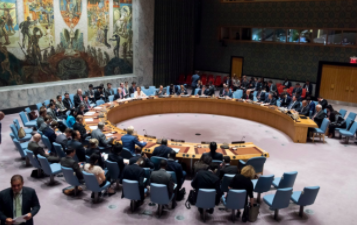The Situation in the Middle East and the Palestinian Question
By Anne Lescure
A wide view of the Security Council meeting about the situation in the Middle East, including the Palestinian question (Photo: UN Photo/Kim Haughton)
On 25 July 2017 the Council's president, the People's Republic of China, convened the Security Council Open Debate on the “Situation in the Middle East”. The debate provided an opportunity for speakers to exchange views on how to best support the Middle East peace process following the recent escalation of violence in East Jerusalem and the West Bank. Similarly to the previous debate on this topic, the speakers highlighted the role of the Israeli-Palestinian conflict in de-stabilising the situation in the region and demanded the cessation of all hostilities to facilitate the return to diplomatic solutions.
Overall, the debate lacked any substantive gender perspective, with only 7 percent of speakers referring to the protection needs of women and girls in the region. The overtly politicised nature of the discussion was superseded by the fundamental failure to address the root causes of conflicts in the Middle East, namely: militarisation, authoritarianism, inequality and oppression of marginalised populations such as women and girls. Only a few, including the representative of Costa Rica, reiterated that military response is not a real solution and peace must be built using tools of diplomacy and multilateralism, instead of violence and destruction.
Read WILPF’s full analysis of the UN Security Council open debate here>>>

